by Anthony Imbrogno, a volunteer with The Calgary Heritage Initiative Society/Heritage Inspires YYC
Many communities from around the world now call Calgary home. In the 2021 census, there were approximately 84,000 Filipinos in Calgary.
The first arrivals in Alberta took place in the 1960s and 1970s. Among the first were skilled workers, as allowed by immigration law at the time. For example, three teachers arrived in 1965, one heading to Lethbridge, another to Fort Macleod, and Aurora Dacanay settling in Taber. Others arrived throughout the late 1960s and became nurses or engineers.
Economic and political upheaval in the Philippines, including the 1972 declaration of martial law, saw an increase in Filipinos seeking opportunities in Canada. Changes to Canadian law also spurred the arrival of newcomers. Between 2011 and 2016, the Philippines was the most common country of origin for immigrants to Canada.
In 2018, June was declared Filipino Heritage Month by a unanimous vote in the House of Commons. Also in 2018, Alberta received two proposals for a Philippine Heritage Month, one for June and the other for September. June makes sense, as it coincides with Philippines Independence Day on June 12, 1898.
The community’s contributions to Calgary’s heritage continue to grow. Spearheaded by the Philippine Tourism Department and Consulate General in Calgary, April is marked as Filipino Restaurant Month. The 2023 iteration occurred in 19 Canadian cities. Calgary, with eight restaurants, had the most participating locations of any city.
In 2021, human rights advocate Marichu Antonio became the first Filipino Canadian to receive the City of Calgary’s Citizen of the Year Award. The Award was established in 1994 to recognize Calgarians for their achievements and contributions to the community.
Also in 2021, a bust of Philippines national hero Dr. Jose Rizal was unveiled in Airdrie’s Nose Creek Regional Park to mark the 160th anniversary of his birth. Dr. Rizal was an eye doctor who was executed for rebellion by the colonial government. He had turned to writing to advocate for self-government through peaceful reforms, which inspired the Philippine Revolution.
Today in Calgary and across Alberta, free peoples gather from all over the world to live and work (and eat) together.
All copyright images cannot be shared without prior permission.
Historical Photos
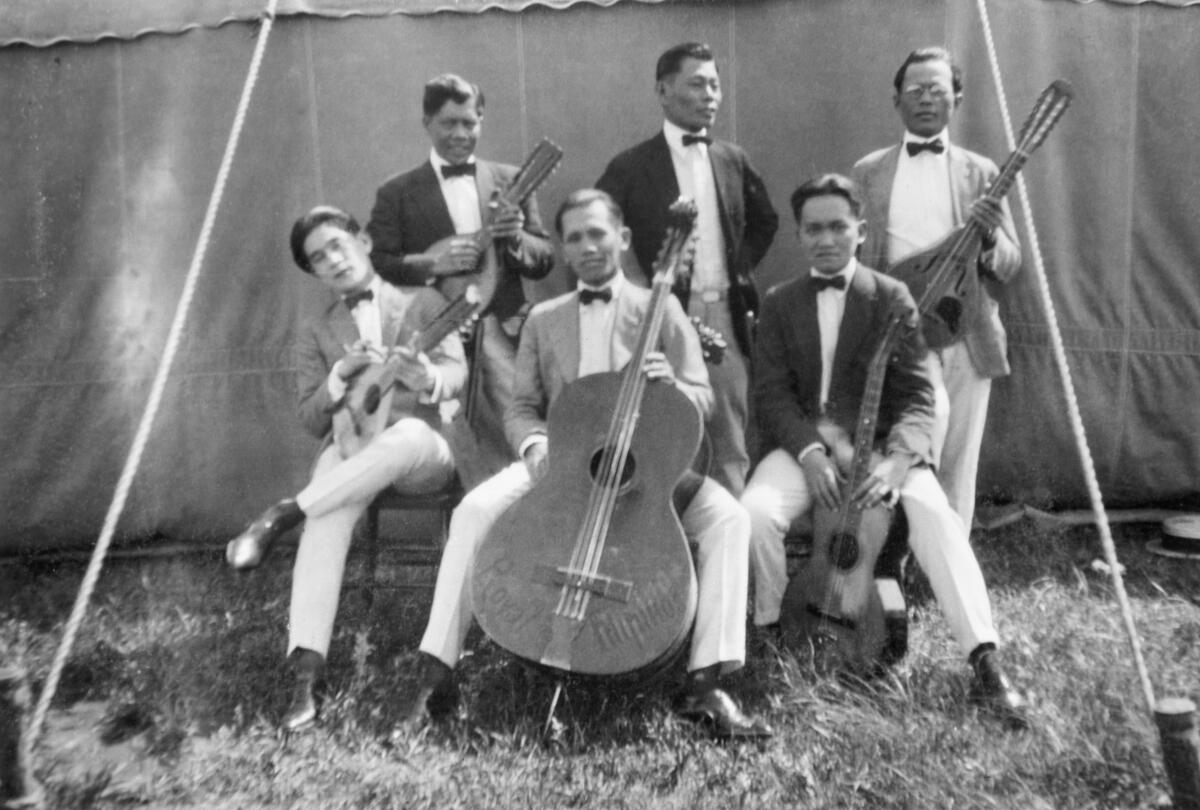
Copyright Status: Public domain. Attribution: “The Royal Filipino Orchestra on Prairie Circuit, Western Canada.”, 1922, (CU1102542) by Unknown. Courtesy of Libraries and Cultural Resources Digital Collections, University of Calgary.
Modern Photos
Max’s Restaurant, 3581 20 Ave NE, 2023. Photo courtesy of Anthony Imbrogno.
Dr. Jose Rizal Monument, Nose Creek Regional Park, Airdrie, AB, 2023. Photo courtesy of Anthony Imbrogno.
Dr. Jose Rizal Monument, Nose Creek Regional Park, Airdrie, AB, 2023. Photo courtesy of Anthony Imbrogno.
Dr. Jose Rizal Monument, Nose Creek Regional Park, Airdrie, AB, 2023. Photo courtesy of Randall Nolasco.

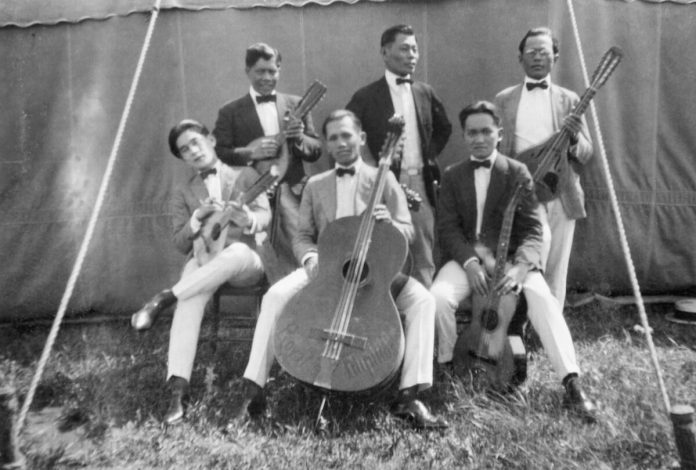
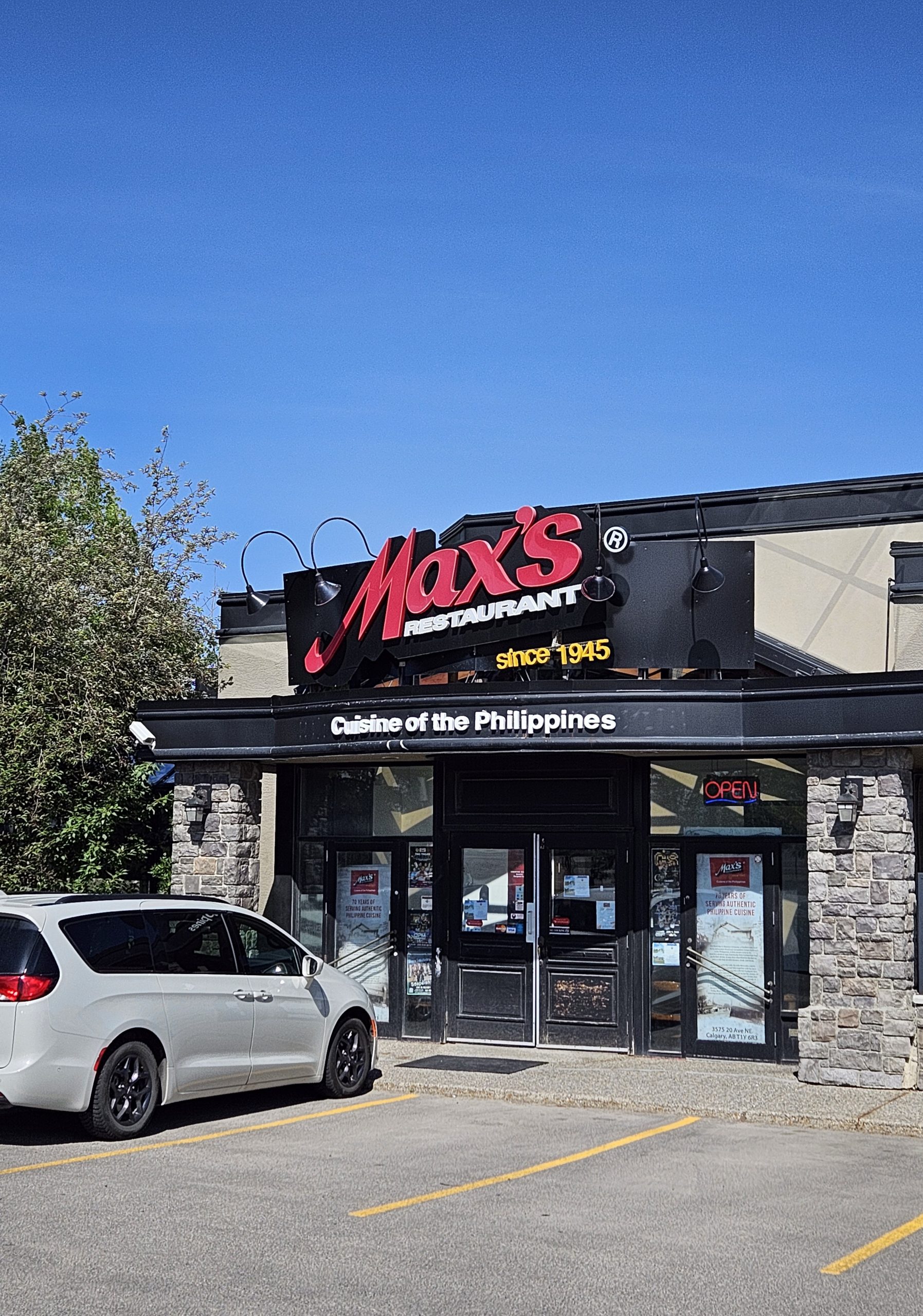
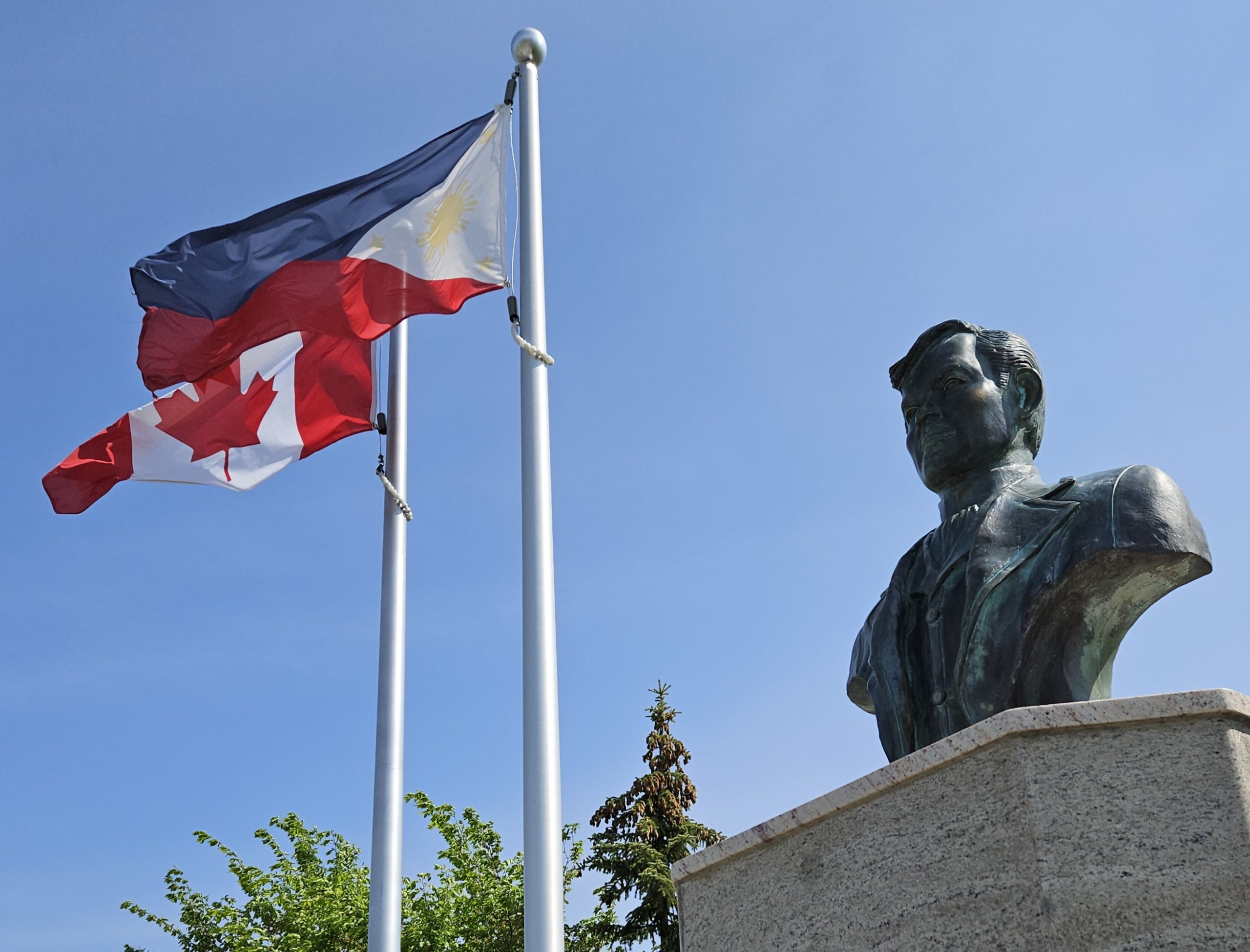
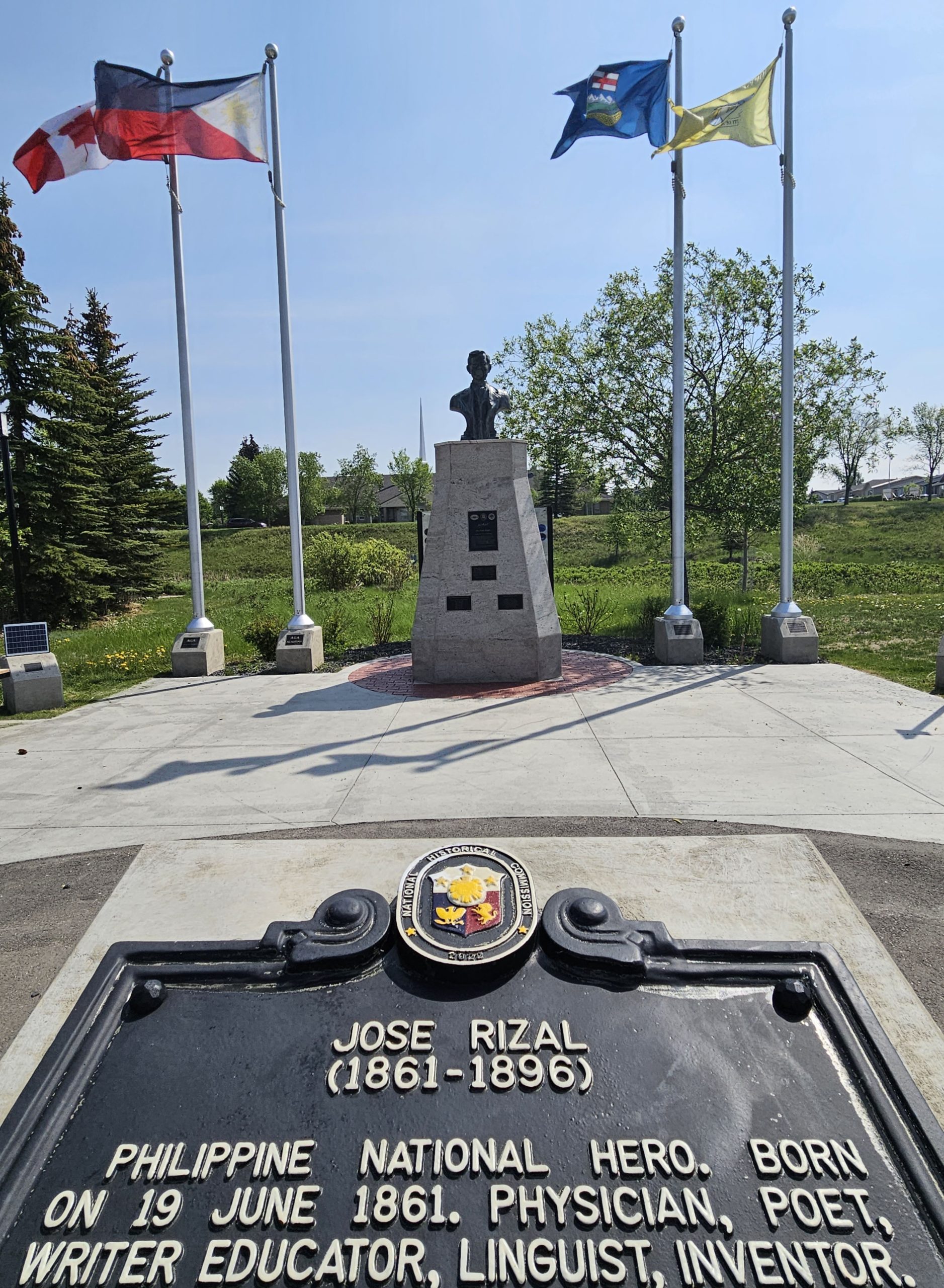
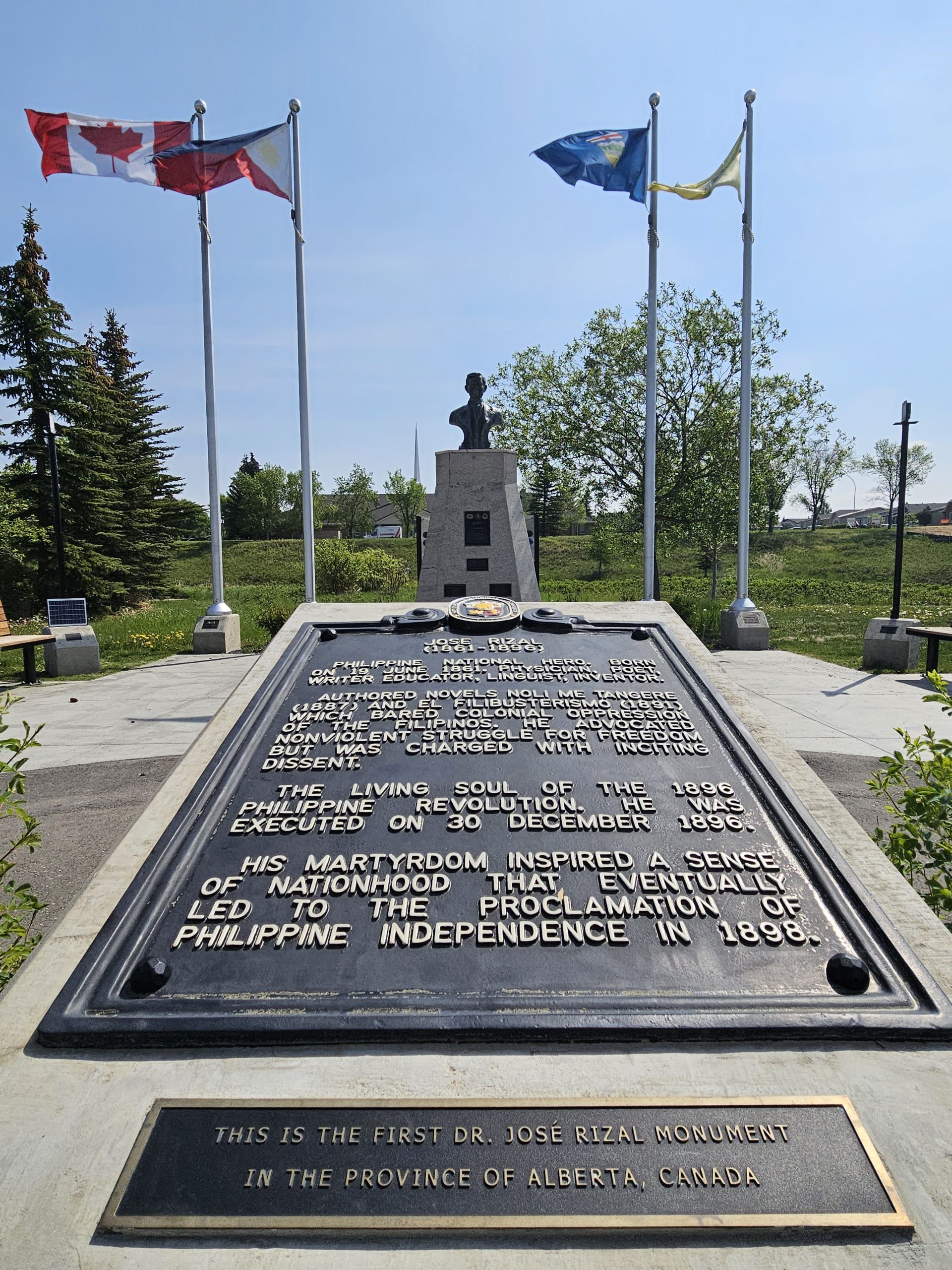
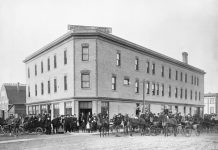

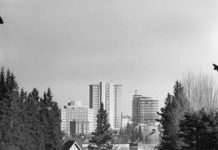


**Comment:**
“As a proud member of Calgary’s Filipino community, I’m delighted to see this article highlighting our heritage and contributions to the city. The bust of Dr. Jose Rizal in Airdrie is a testament to our commitment to preserving our history while embracing our new home. I’m looking forward to celebrating Filipino Restaurant Month in Calgary this April! Mabuhay!”